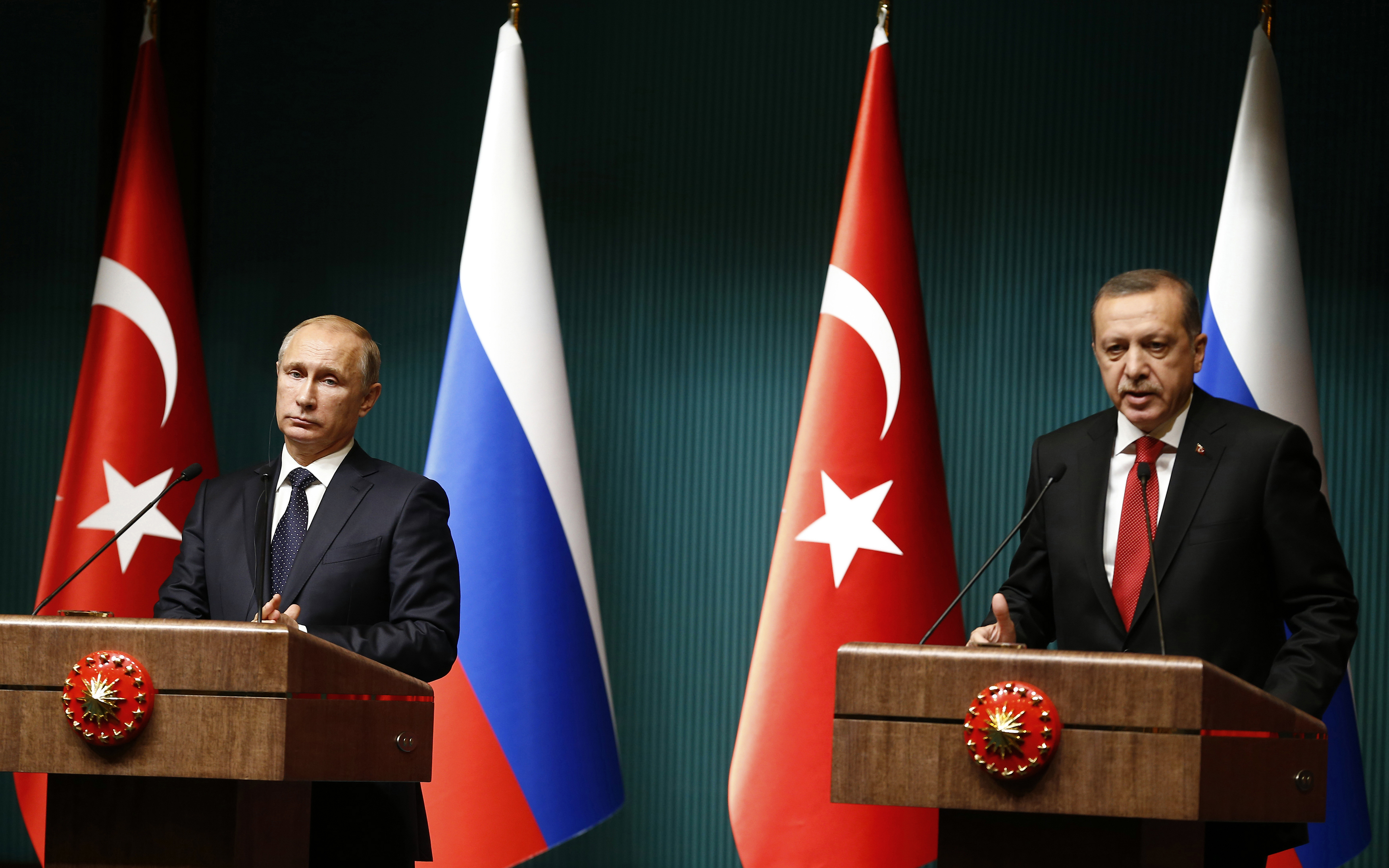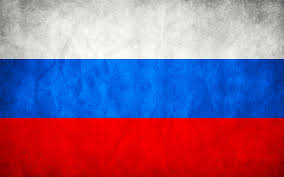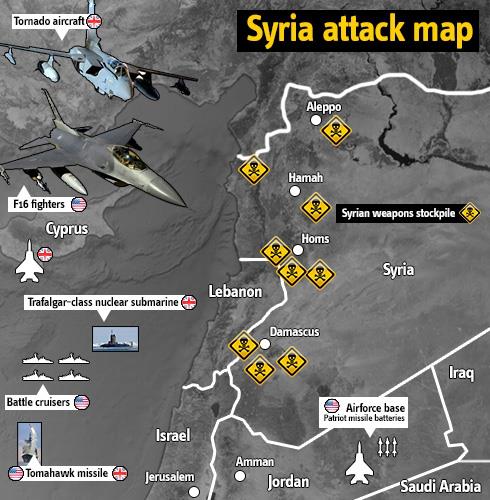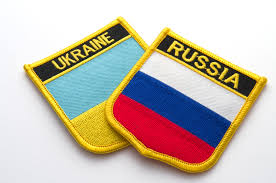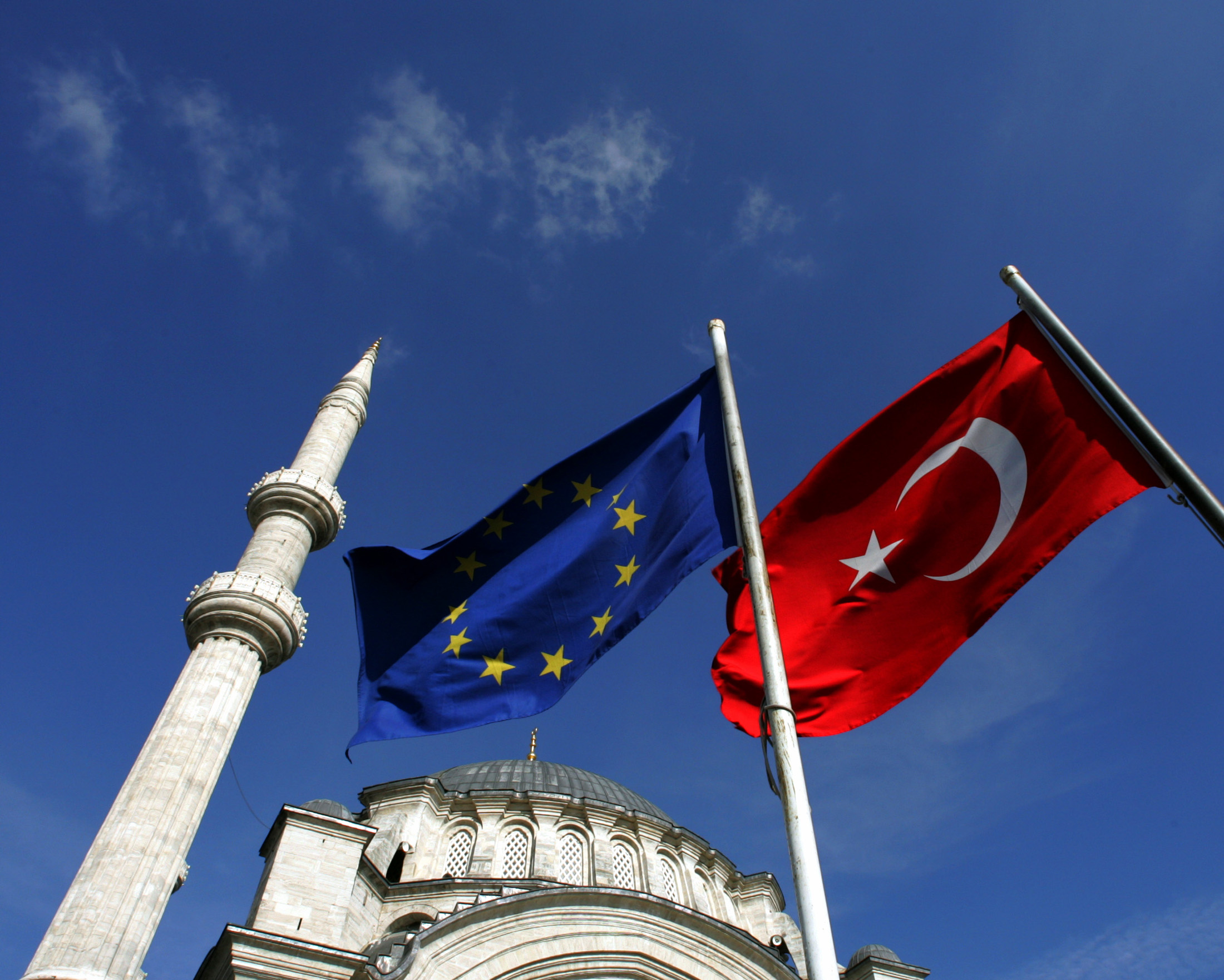The rift between Russia and Ankara is growing after Turkey shot down a Russian fighter jet that allegedly violated its airspace. On Nov. 24, Russian President Vladimir Putin said the attack would have “serious consequences for Russian-Turkish relations.” There has been a flurry of diplomatic activity in the short time since the incident, and the countries have severed military contacts.
But this may not be enough to appease Putin’s constituents. Calls are mounting among Russian government officials, politicians and businesses for the Kremlin to restrict trade with Turkey. And Russia has options to do just that, especially in the energy realm, where it is still Turkey’s largest natural gas supplier. However, Putin will have to decide whether the benefits of punishing Turkey now by cutting off its natural gas supplies outweigh the risk of pushing Ankara to search for alternative sources of energy down the road.
Analysis
Trade between Russia and Turkey is heavily concentrated in a handful of sectors, the most important of which are energy, metals and agriculture. Altogether, Russian exports make up about 10 percent of Turkey’s imports, while Turkey accounts for only 4 percent of Russia’s exports.
The energy sector is by far the most important when it comes to Russia-Turkey trade. Russia is Turkey’s biggest foreign source of natural gas, supplying 55 percent (about 27 billion cubic meters) of Turkish natural gas consumption needs in 2014. By comparison, only 13 percent of Russian natural gas exports go to the Turkish market. Russia sends its natural gas to Turkey through two pipelines, each with a capacity of 16 billion cubic meters. The first, Blue Stream, is a direct route that runs across the Black Sea, while the second, the Gas-West pipeline, transits Ukraine, Romania and Bulgaria first. Turkey receives the rest of its natural gas imports from Azerbaijan through the South Caucasus Pipeline, from Iran through the Tabriz-Dogubayazit pipeline, and from Algeria and others through its own liquefied natural gas terminals at Marmara Ereglisi and Aliaga.
The biggest problem for Turkey is that if Russia chooses to cut off its natural gas supplies, it would have little room to ramp up its imports from other providers. All of Turkey’s non-Russian import routes and facilities are operating near capacity; it has less than 7 billion cubic meters of extra capacity left in its LNG terminals, and possibly another 4 billion cubic meters of storage space, although it is unclear exactly how much of its storage is currently filled. Should Russia halt flows through both of its pipelines and deprive Turkey of 27 billion cubic meters of natural gas, Ankara would be unable to make up for even half the missing supplies.
The Russian Energy Ministry has already promised to honor its contracts with Turkey, and the Kremlin has its own reasons to avoid tampering with energy exports. Cutting all natural gas supplies to Turkey would mean halting the flows to Ukraine, Romania and Bulgaria as well. Russia has been wary of using this option in recent years as it has tried to preserve its energy foothold in the West amid EU regulatory measures that have weakened the Kremlin’s ability to politicize its energy contracts. Consequently, if Russia decides to restrict its energy trade with Turkey, it may still be willing to shut off only its direct exports to Turkey through Blue Stream.
Putin will have to weigh any punitive action via energy exports against his long-term interest in gaining Turkey’s cooperation on future projects, especially TurkStream. The controversial pipeline is intended to bypass Europe, linking directly to Turkey through another Black Sea connection of between 30 billion cubic meters and 63 billion cubic meters. In recent weeks, the Kremlin indicated that Russia and Turkey would try to make progress on an agreement about the proposed pipeline during Turkish President Recep Tayyip Erdogan’s December visit to Russia — a visit that now may not happen. If Russia restricts its natural gas exports to Turkey for political purposes, Ankara will likely hesitate to move forward with any energy project that would increase its direct reliance on Russian supplies.
Moscow Has Other Options
Energy is where trade restrictions would hit Turkey the hardest, but given the blowback such tactics could have on Russia’s long-term interests, Moscow may look to make its point elsewhere. Russia supplies a hefty portion of Turkey’s metals: Russian iron and steel make up 15 percent of Turkey’s imports, while Russian aluminum makes up 31 percent. However, the global markets for these goods are saturated, and Turkey would be able to easily compensate for any lost supplies with imports from elsewhere. Therefore, targeting the metals trade would burden Turkey only temporarily, and the United States and Europe would likely facilitate or support transportation to fill any longer-term gaps.
Alternatively, Russia could restrict its exports of cereals to Turkey, especially wheat. In 2014, Russia provided roughly 70 percent of Turkey’s total wheat imports, meeting nearly one-third of the country’s consumption needs. But Turkey has seen a strong domestic wheat harvest this year, and low global prices would minimize the financial impact of Turkey having to find a replacement for Russian wheat. In 2010, Ankara showed its ability to withstand Russian grain export bans, with inflation being the only major ramification.
Rather than cutting its exports, Russia could look to ban imports of Turkish food, along the lines of its current ban against EU and U.S. imports that it enacted as part of counter-sanctions. The Russian market consumes nearly 40 percent of Turkish fruits and vegetables exports, an amount that has risen slightly since Moscow implemented counter-sanctions. Russian food watchdog Rosselkhoznadzor announced Nov. 25 that it was banning poultry imports from subsidiaries of Turkish firm CP Standart Gida Sanayi Ve Ticaret Anonim Sirketi because of listeria concerns. However, there are still 10 other Turkish companies that have licenses to export poultry to Russia, meaning the case probably was not politically motivated.
Moscow could also enact some restrictions that are primarily intended to make a statement rather than a major economic impact. Russia’s Federal Tourism Agency has already asked Russian tourist operators to suspend trips by Russians to Turkey, and the Russian Foreign Ministry has recommended that Russians avoid traveling to the country. Since tourism makes up 12 percent of Turkey’s gross domestic product, it is one of the more visible targets Moscow has at its disposal. Russian media have been quick to show video footage of Russians returning their tickets to Turkey. Still, Russian tourists account for only 14 percent of Turkey’s total tourism, and their trips are usually concentrated in the summer months, with the exception of a slight uptick during winter holidays.
Russia’s final option would be to hinder Turkey’s trade with other former Soviet states. Moscow pursued a similar strategy in early October, when Russian customs officials halted the issuance of transit documents for Turkish trucks. Approximately 8,000 Turkish trucks cross Russia on their way to Central and East Asia each year, mostly transporting chemical or electronic products valued at about $1.7 billion. The Kremlin has used similar customs restrictions on other countries in the past, and Turkey could be next.
Russia has a wide range of trade-related choices when it comes to retaliating against Turkey’s military actions. However, the only sector that trade restrictions could truly deal a blow to is energy. Russia has wielded this tool many times before, in many different crises. But the Kremlin is aware that while it may make a clear political statement in the short term, it would also accelerate Turkey’s drive to diversify its energy sources in the hope of depriving Moscow of its leverage in the long run.

